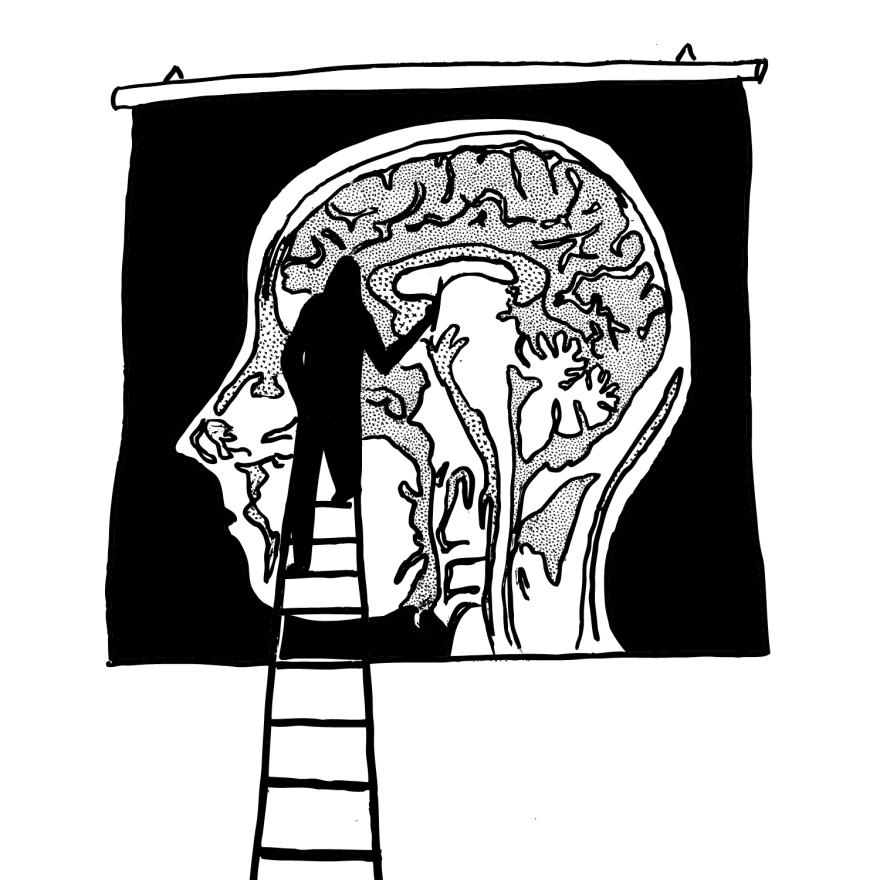On the last Criminal podcast, we heard from a woman who learned that her mother had stolen her identity, ruined her credit and never came clean. Axton Betz-Hamilton now suspects that her mother was a psychopath. In this week's episode, several experts explain what it really means to be a psychopath.
Criminal host Phoebe Judge said Betz-Hamilton was thrown by her realization that her mother probably felt no remorse for the harm she caused her family, all the while being warm and kindly.
Lawyer and physician Dr. Ronald Schouten of Massachusetts General Hospital has a new book about this kind of behavior. It's called "Almost A Psychopath." In it, Schouten says psychopaths make up about 1 percent of the population, or about 3 million people.
"The majority of them are not physically dangerous in terms of violent crimes," said Schouten. "However, it's important to think about the following distinction: We consider psychopaths as either successful psychopaths and failed psychopaths. And the failed psychopaths are the people that ends up in prison. The people that you're more likely to encounter are the successful psychopaths."
So, while psychopaths regularly go to prison, they're not usually violent. Likewise, not all criminals are psychopaths.
To better understand what makes someone a psychopath, Judge spoke with journalist John Ronson. He authored a popular book called "The Psychopath Test." Much of it is based on a 20-point checklist by Canadian psychologist Robert Hare. A score of 30 above means the participant is a psychopath.
Judge says those who test positive aren't loners who give those around them the creeps. They're often charming, even grandiose. They're easily bored. They lie a lot, but don't care if they're caught. What's key is a lack of empathy.
Psychopathy can be a result of genetics or upbringing, but the debate about nature versus nurture continues. Judge says psychopaths can logically know something is illegal, but don't let morality affect their behavior. Scientists have found that psychopaths have under-active amygdalas. That's the part of the brain that processes fear, guilt and anxiety.
Author John Ronson says if you're an anxious person, you're probably not a psychopath.
"Fear, distress, remorse, guilt. these are the feelings that keep us good. And psychopaths don't have those feelings, which is the reason why it's not a problem for them to transgress," said Ronson. "It always makes me thing that psychopathy is one of the most pleasant-feeling of the mental disorders. Because all the feelings we have that keep us good, they're unpleasant feelings."
Attempts to treat psychopathy have been largely unsuccessful. One Canadian study tried to force empathy with LSD, but it backfired. Most of the participants had increased crime rates afterward, and they had simply gotten really good at faking empathy.
Dr. Ronald Schouten says people who suspect they know a psychopath should be on the look out for abusive behavior, especially if the person in question is a romantic partner. Concerned parties should keep track of incidents. If they're constantly being constantly blamed for someone else's problems and the abuser never admits wrongdoing, the victim just might need to leave.












